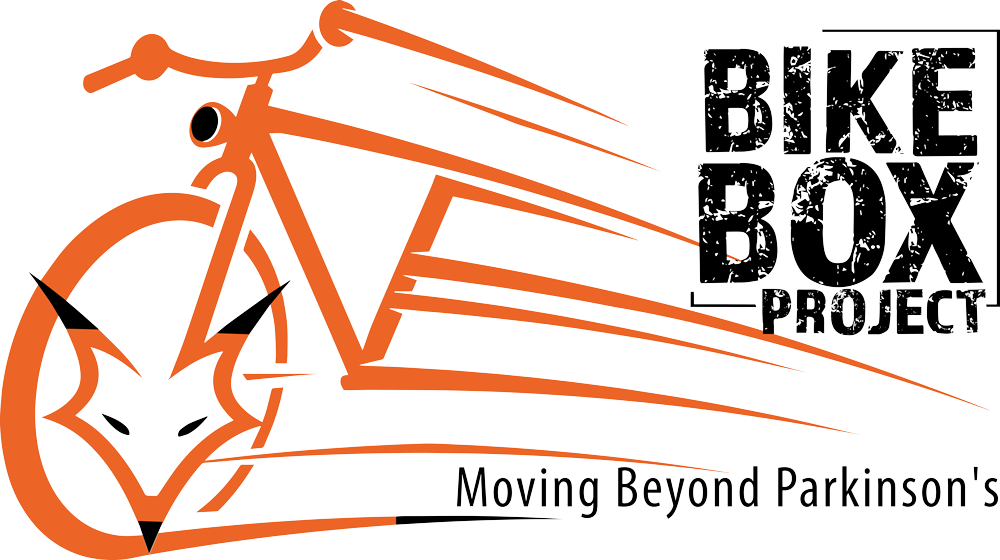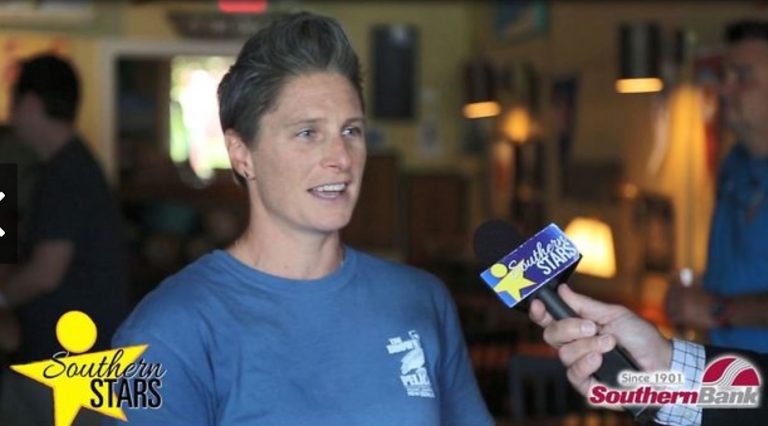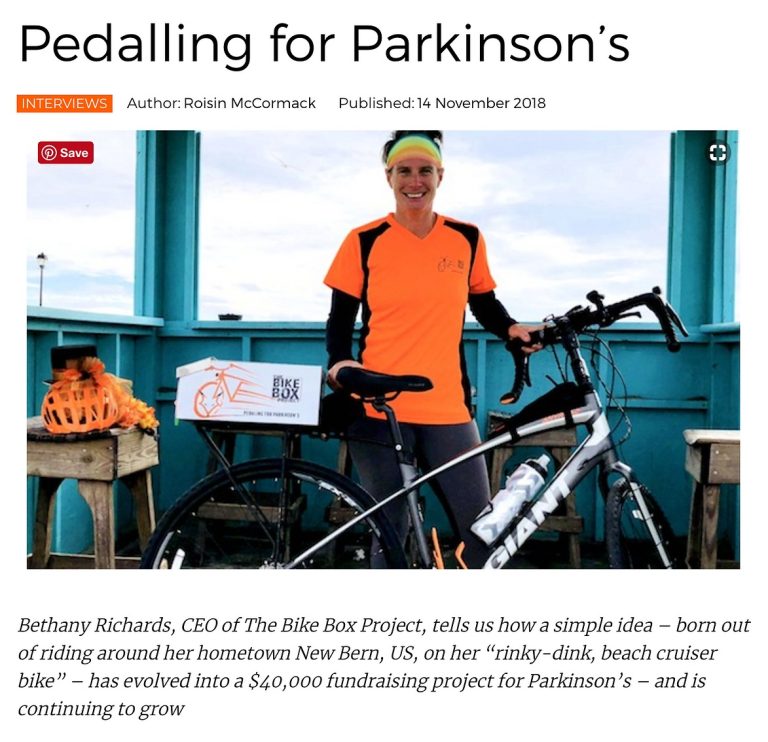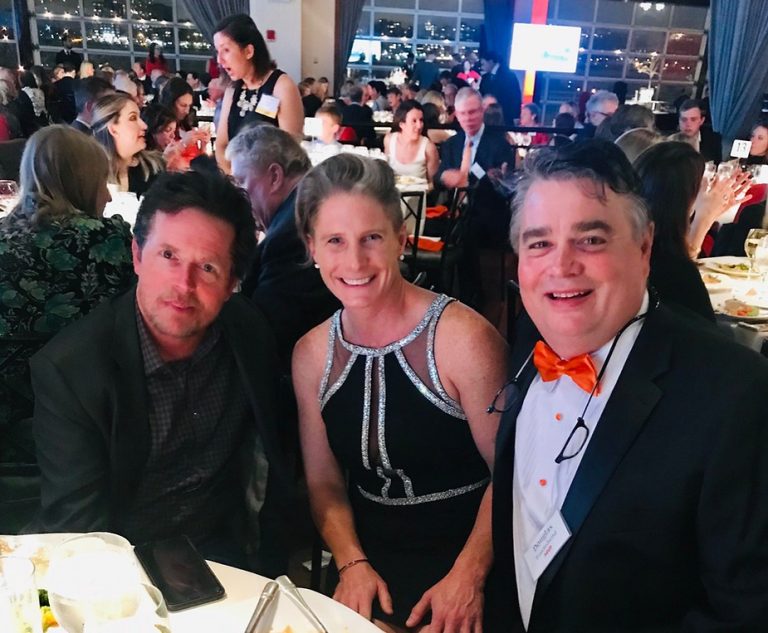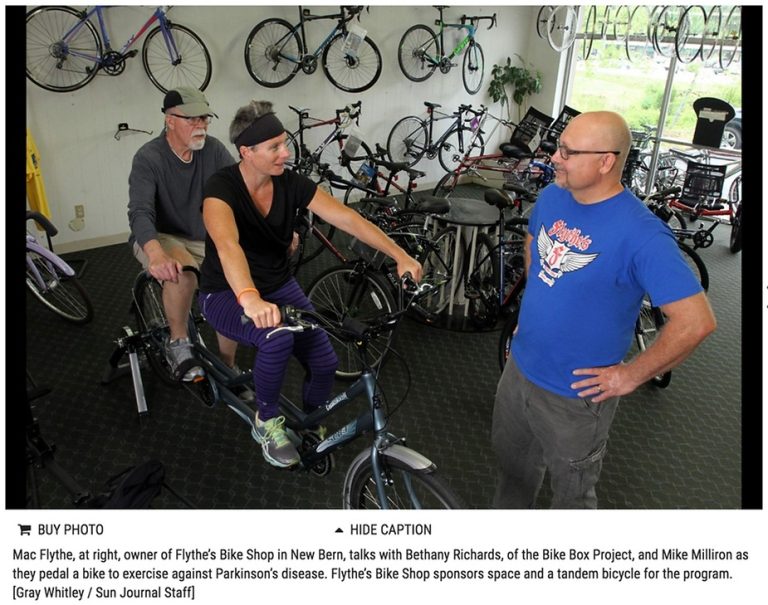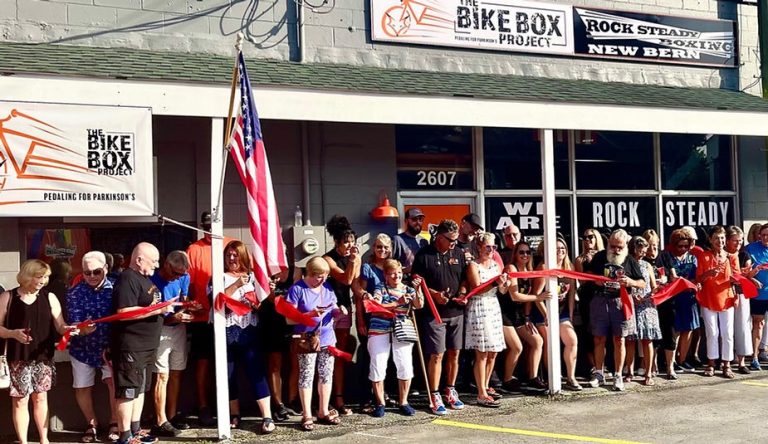This month, we are honored and thrilled to share some words of wisdom from a close friend of the Bike Box Project and a consistent supporter of our work. Adrienne Martinez is a Doctor of Physical Therapy and longtime friend of two members of the Board of Directors, Melissa and Christina Lunsmann. Adrienne has a personal story about Parkinson’s Disease, and she was willing to generously share her story with us. We are so grateful for Adrienne’s support and friendship over the years, and we are incredibly fortunate that she was willing to share her story! Please join us in thanking Adrienne for her words and continued generosity.
Hello fellow Bike Box Project and Rock Steady Boxing fans,
It’s my pleasure to be able to share a little bit about my experience with Parkinson’s disease (PD). I personally do not suffer, but my father sure does. He has early onset PD. I knew something was off with him when I was in college, when he said he was no longer scrubbing into surgeries, but he was very good at hiding things (or being subtle with hints; you see he’s a primary care physician and knows everything ). I was off to grad school where I was learning to become a physical therapist, and I secretly was able to diagnose my dad with PD before he even told me.
I remember the car ride where he gave me all the cardinal signs of PD, like I was being quizzed. Then I knew the next words out of his mouth: “so what do you think I have?” He had already gone to see a neurologist at this point—a local person who we are both very familiar with and with whom my dad has worked for many years. I was in school and clinicals so I couldn’t attend any of his appointments at that point and nor did he want me to. When I graduated from grad school, my dad included me in one of his appointments, where his neurologist told him that, in his opinion, therapies (specifically speech language pathology therapy) would not help.
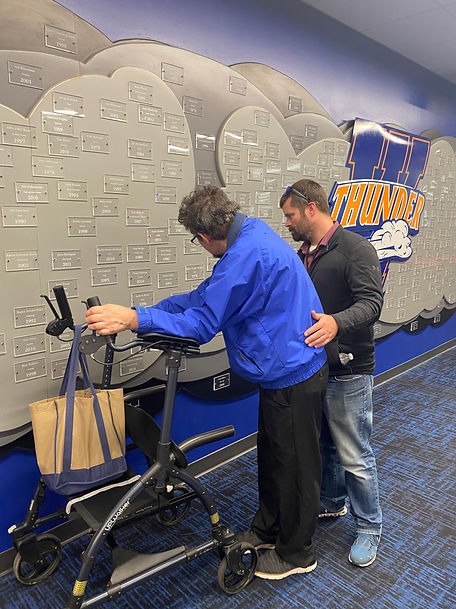
At this point, his neurologist sent him to a motor movement disorder specialist in a large healthcare system. I was so glad for this. Not only do I think therapies are crucial for these patients, I also just spent many years becoming a therapist (all for a good reason, must have been fate!). My father progressed quickly, with milder symptoms of PD, but they became very debilitating to his way of life. After many therapies and medication changes, he was forced to retire from his vocation in 2016.
He just wasn’t legible or audible anymore. He had such severe dysfluencies at this time that the LSVT LOUD program and the Speech Easy implant/program were not enough to be able to perform in a professional setting. For most, retirement would sound amazing. For my dad, it was really something that impacted his quality of life. He only had about 2 great years of retirement before his posture and balance really declined. He started to have balance issues but then was on a medication for a while that seemed to stop it altogether. I was amazed.
At the start of the pandemic, my father was a black belt in Tae Kwan Do. He went regularly to meets and practices. When his balance started to worsen again, I worked with him privately as a physical therapist (you can imagine how that ended up).
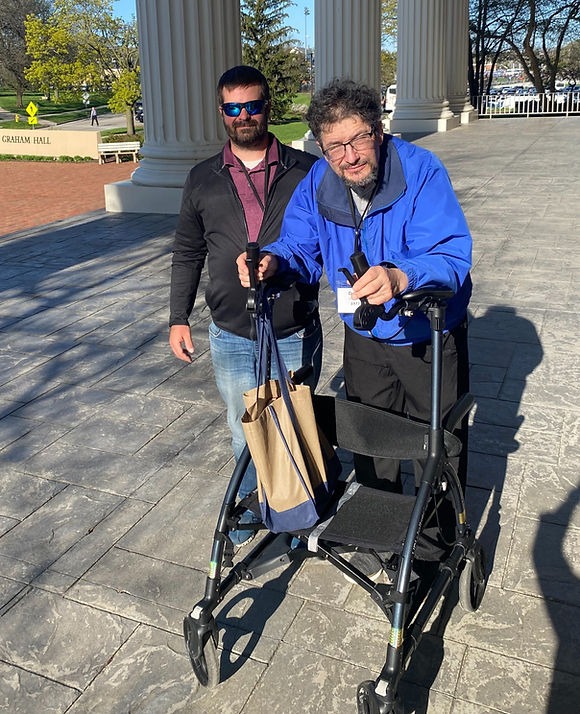
With the pandemic (and so many other factors), these types of things were less of an option. His driving was impacted (thank goodness his license was finally not renewable! That’s another story). His ability to gain access to resources dwindled because of many factors. In August 2020, he was falling pretty consistently to the point where my mom was no longer able to help him off of the floor. He could get up by himself, but only after being on the ground for 20-30 minutes (or maybe longer), which is not functional. He had never been hospitalized for his disease nor had he ever been to inpatient rehab. At that point, I thought it was time for an intervention.
I don’t have time to share everything that has happened since then, but I will say my dad really needed more resources and insurance that would allow him to get some intensive therapy. However, he managed. He’s resilient and most of all stubborn.
My dad was falling about 20-30 times a day, only using a platform/upright walker when out of the house and struggling with his daily function/activities of daily living (ADLs). Although he was “independent” with his ADLs, he couldn’t use a cane or standard rolling walker anymore due to his severe balance issues with static and dynamic balance. However, he could go up and down the stairs like nobody’s business (figure that one out!).
Both he and my mother really struggled, and they hesitated to ask for help. Then, in November of 2021, his caregiver, my beloved mother, passed away.
Fast forward after a few rounds of home health therapy and outpatient therapy, my father’s balance is still impaired and falling is a part of daily life. I have seen it firsthand that if you do not move and exercise daily, you will decline if you have Parkinson’s.
I’m proud to then say that this organization/program has wonderful classes for Parkinson’s patients and even some opportunities for providing transportation. This is not available in every community so that’s why I must encourage you to look into this program and organization. It’s an amazing opportunity to draw in a specialized population but also to create a community of strong boxers. This strong community will build relationships, help ward off the decline of Parkinson’s disease and, I’m sure, create a support system filled with a network of diverse backgrounds. Don’t hesitate to learn about this great community and support it. I’m lucky to know them and blessed to see the great results the clients are receiving.
Thank you for your time,
Adrienne Martinez, DPT
(she/her/hers)
Manager of Operations
Inpatient Therapies
Huntley Hospital
